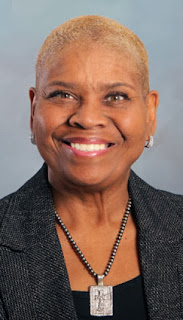Sunday, November 24, 2013
Blog Post 14
PLN
C4K- November
For my first C4K this month I commented on Emma’s blog. Her class is reading a book called “Out of my Mind.” She was asked to post on her blog about three words she did not know from the story, give the definitions and tell how they were used in the story. I responded to Emma by saying :
Emma, My name is Rachel, I am a college student at The University of South Alabama! I really enjoyed this post. It is great that you are learning so much. A dictionary is a great resource to use when you don’t understand what words mean. It is great that you are learning to do these things. It will really come in handy later in life! Great work.The next students post I commented on was Nathan from Pt England School. His post was a story translated into English. I responded to him by saying:
Hi Nathan, I am Rachel a student at the University of South Alabama in Mobile, AL, USA! This post is so neat! What language is it originally in? This saying is really great. It is a great thing to gather together to learn. Learning is so important and learning through technology, as your class is doing, makes it fun! I really enjoyed your blog post. Keep up the great work.My last C4K was on Kaya’s blog post titled “Why we need to use the Crossing.” Kaya tells us in this post wy it is so important to be safe and always use the cross walks that are provided. I replied by saying:
Hi Kaya! My name is Rachel Hinton! I am a student at the University of South Alabama. I really enjoyed your video about using the cross walk and being safe. It is so important that you are learning these things so you won't great hurt! Great post. Keep up the good work blogging!
C4T #4
Sunday, November 17, 2013
Blog Post #13
Sunday, November 10, 2013
Blog Post #12
“We might not see the future, but they will. Our Job is to help them make something of it.”
Wednesday, November 6, 2013
Sunday, November 3, 2013
C4T- Tom Schimmer
The first post Mr.Schimmer talks about how teachers use homework as a means of practice, but if it really considered practice then why do we grade them on it? He makes a very good point. This was a very informative post to read. He believes that homework should be for practice and used formatively rather than being used as part of a summative reporting process. I have to agree. This was my reply to his post,
Mr. Schimmer, I am Rachel Hinton an EDM 310 student at the University of South Alabama majoring in Elementary Education. This semester in EDM we have learned so much about 21st century learning and ow helpful if can be in making our students excited about learning. Before this class I would have probably went into teaching thinking the same way most teachers do about homework, that the students need to do it to learn or that it has to be required but there are so many different things that can be used besides homework, especially if it is going to be graded. I find this blog post very interesting. I agree with you 100% that homework should be only for practice and formative assessment. If the students are only worried about gettting it finished to earn the points many times they will not really be learning anything anyway. Thank you for a great post can’t wait to read more!The second post I read was about students being curious. He says that we should ask ourselves as we are planning our lessons if this will strike the curiosity of our students or if it will just bore them. He tells us to start with questions and ask them what they are curious about before we even begin class. He encourages teachers to foster the kids curiosity and soon it will become easier and easier. My reply to this post was:
Hi, I am Rachel Hinton. I commented on one of your more recent post for my EDM 310 class. I really enjoyed this post. It is very helpful especially for future teachers like me. This is something that I will keep in mind when I begin teaching in the future. Hopefully if I were to start out with things like this it will be easy to maintain throughout my years of teaching. I have really enjoyed your blog. Thank you for all your great post and I can’t wait to read future post. Rachel
C4K- October
C4K #4- Lauren: The American Dream
Lauren’s post on the American dream was very interesting post. She talked about how the true American Dream is to become leaders. I replied to her by saying,
Hi Lauren, I see you have been getting many comments from our EDM 310 class this past week! My name is Rachel Hinton, and I am so glad that I was chosen to comment on your blog along with a few others. I really enjoyed reading your post! I am so glad to see someone so interested and passionate about something. “The dream to be a leader, a champion, a protector of natural rights.” This gives me a new look on what we as Americans see as the “American Dream.” Your post really gave me a lot to think about and had me questioning my thoughts about the American Dream and the real genius of our founding fathers. I am so thankful that I have been given the opportunity to become and be a leader. Thank you for your outstanding post! Keep up the blogging. I can’t wait to read more! Rachel Hinton- http://hintonracheledm310.blogspot.com/C4K #5- Briana: Melody and Penny Briana’s class was reading a book called Out of my Mind. In her post she had to answer two questions: • How do you think Melody will react to having a new sibling in the house? I think Melody wa nervous about having a sibling in her family. • What themes or big ideas do you think that Sharon Draper is trying to get us to think about as we read these chapters?I think that he is trying to tell us that we are suppose get along with other people even if there like Melody because is a really nice girl and I think in the book I can hear her voice when Ms. Eppele is reading the book. I replied:
Hi Briana! My name is Rachel. I am a student at the University of South Alabama in Mobile, AL, USA. Although I have never read the book that you are reading it sounds really interesting. Service dogs are really neat and good to have especially for those who or blind or for older people who are alone. Did you know that some dogs can even be trained to smell cancer in humans before it can even be detected by doctors or test? Although I’m not sure of Melody’s situation I am sure I would be very nervous for a new sibling to be coming into my house! It would be so strange to get use to such a change like that when things have been the same for so long. Out of my Mind sounds like a great book especially if it teaches us to get along with others! I will have to try to read it soon. I really enjoyed reading your blog! Thanks so much for your great post! Keep up the good work!Rachel C4K #6- Matt: Trip to Yamnuska Matt talked about his trip to a park called Yamnuska where he learned about fungi, moss, and lichen. He included pictures as well. This was my reply,
Hi Matt, I’m Rachel Hinton an EDM 310 student at the University of South Alabama in Mobile, Al. I really enjoyed your blog post! It is so great that you are learning about this neat stuff! I really liked your fun fact about the caribou! That was something that I never knew! This sounds like a really cool place to go! Your pictures are great! Keep up the good work blogging! RachelC4K #7- Jun: Rebuilding Christchurch In his post Jun talks about his three wishes for Christchurch community: rebuilding the damaged buildings, having things for tourists to do, amazing amusement parks and trams to travel around Christchurch. I told Jun:
Jun, I am Rachel a college student in Mobile, AL, USA. Your thoughts and ideas for you town are great! I think it is great that you are so concerned about your town. You have some really good ideas. I love the idea of amusement parks probably because I love them so much myself! Bike trains sound like so much fun! I wish we could put something like that on campus! I really enjoyed reading your post! Keep up the good work blogging. Rachel
Blog Post #11
Subscribe to:
Comments (Atom)






